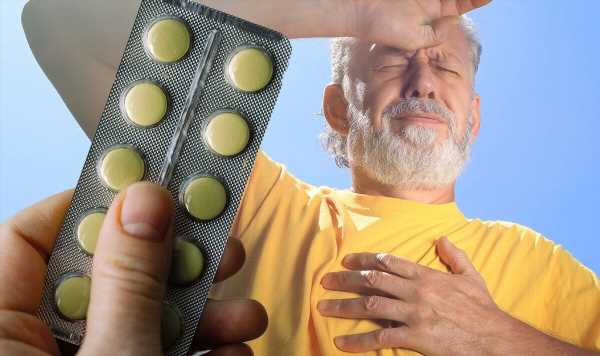Heatwave hacks: Dr Amir shares tips to stay cool in hot weather
We use your sign-up to provide content in ways you’ve consented to and to improve our understanding of you. This may include adverts from us and 3rd parties based on our understanding. You can unsubscribe at any time. More info
For many people on the fence about climate change, the recent heatwaves that scorched Europe was the smoking gun. Hot weather looks set to become the norm, even if net zero targets are achieved anytime soon, which looks increasingly unlikely. This makes the advice issued by Scott Hall, Mayo Clinic pharmacist even more salient.
Many medications can become degraded by the heat and this can produce unwanted effects on the body.
According to Mr Hall, temperature changes not only degrade certain medications – they can cause heat intolerance too.
Heat intolerance is a feeling of being overheated when the temperature around you rises.
“Temperature can impact any medication a person is taking, but some are more prone to problems than others,” warned the pharmacist.

According to Mr Hall, insulin falls into this camp.
“So patients with diabetes should try to not store their insulin in a place where the temperature will get too high.”
He recommended storing your medications in a cool, dry place.
“If you keep them in a bathroom where you shower, leave the medicine in the original container.”
DON’T MISS
High cholesterol: Signs on your face of early death [INSIGHT]
Bowel cancer: Nation’s favourite food hikes risk [ADVICE]
Heart attack: Two meds increasing risk in hot weather [TIP]
The pharmacist continued: “Keeping it in those bottles where they can remain sealed, is really going to help prevent any negative effects of heat.”
According to Mr Hall, some medicines can cause heat intolerance.
Those may include:
- Blood pressure medications
- Antihistamines
- Decongestants
- Psychiatric medications.
What else does the pharmacist advise?
“If you have questions about your medication, it’s important to ask your health care team.”

He continued: “If you have questions about your medications and how you should store them, or how they could affect you in the heat, that’s a great time to talk with your pharmacist.
“They can provide that information that you need to really understand what the possibilities are.”
His advice comes amid a new study, which found users of beta-blockers or antiplatelet medications were likelier to have heart attacks during the hottest days compared to control days.
Antiplatelet medication use was associated with a 63 percent increase in risk and beta-blockers with a 65 percent increase.

People taking both drugs had a 75 percent higher risk.
Antiplatelet drugs are medications that prevent blood clots from forming.
Beta blockers, also known as beta-adrenergic blocking agents, are medications that reduce blood pressure.
The study found non-users of these medications were not more likely to have a heart attack on hot days.
Source: Read Full Article
